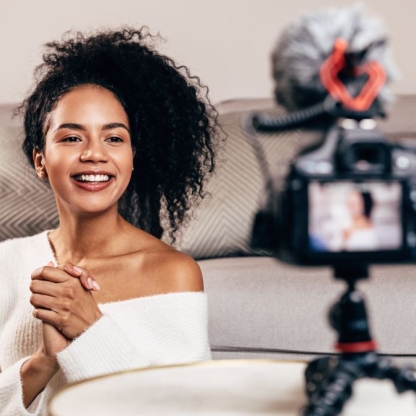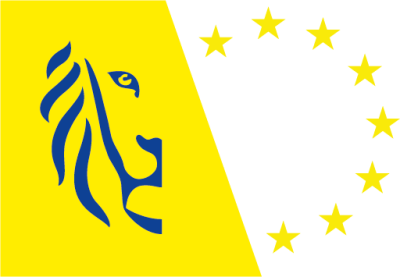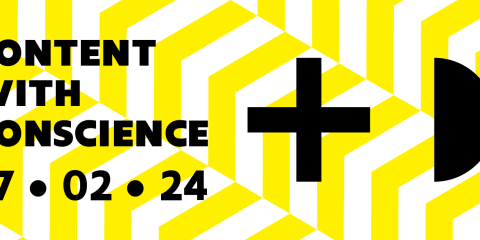| 09:30-09:45 |
Welcome speech and opening of the conference (on-site + streamed live) |
- Věra Jourová, Vice-president for Values and Transparency at the European Commission
- Flemish Minister for Brussels, Youth, Media and Poverty Reduction
|
| 09:45-10:30 |
Keynote and panel: The role of influencers in the media landscape (on-site + streamed live)
This session sets the tone of the conference and focuses on the role of influencers in the media landscape. As we will see throughout the day influencers and online content creators are a diverse group of online actors with a broad impact on society and European citizens. They take up a role as media-actors and are sources of information and entertainment for many, especially young people. Where do influencers and online content creators position themselves in this media landscape? What social impact do they have as media-actors? What are the (dis)advantages of the pluralism of this group?
|
- Keynote: Liselot Hudders (UGent)
- Panel: Hendrik Ruhe (Instinct3), Renaz Ebrahimi (renaz - influencer), Mikael Hindsberg (YLE)
Moderated by Eefje Depoortere
|
| 10:30-11:00 |
Break |
|
| 11:00-12:00 |
Break-out sessions (ON-SITE ONLY):
- Online hate speech & cyberbullying
The fight against cyberbullying or online hate speech targeting certain categories of the population is an important one. Because of their intrinsically public role, influencers and online content creators can take a position as actors, but are also often victims of such aggressive behaviour. Is it the task of influencers to boost peaceful behaviour in their online communities, and if so, how can they go about this? Do influencers have all the tools needed to combat online hate speech and cyberbullying or is more education needed? How can influencers handle cyber-harassment targeted at them?
- Should influencers follow an ethical code?
Through their wide social media presence, influencers and online content creators have a great impact on the content Europeans consume on a regular basis. An ethical code could provide guidance and make sure content creators think about the impact they can have on their followers. Influencers and experts will discuss the need for such a code in this session.
- Advertising and responsible influencing
Influencers gather income from advertising. They are becoming increasingly more professionalized and influencing and content creating has become a full-time job for some. Companies use these influencers to advertise their products, but also influencers have responsibilities towards their followers. How can they practice responsible influencing, and how can policy support them in this? What role has advertising to play in responsible influencing?
|
- Florence Hainaut (journalist)
- Sara Pabian (Tilburg University)
- Jane McGarrigle (Webwise)
- Yannick Schumacher (yayavanchique - influencer)
Moderated by Nick Socquet (Flemish Department of Culture, Youth and Media)
- Nesrine Slaoui (journalist)
- Mohamed Mansouri (ARPP)
- Ava Montgomery (Conscious Media Consulting)
- Andro Anic (hey.andro - influencer)
Moderated by Tim Verheyden (journalist)
- Adriana Pompesciou (Lioness media)
- Catalina Goanta (Utrecht University)
- Lucas Boudet (EASA)
- Lora Petkova (laurapetkowa - influencer)
- Vladimira Durisova (European Commission)
Moderated by Patrick Marck (FeWeb)
|
| 12:00-13:15 |
Break |
|
| 13:15-14:15 |
Break-out sessions (ON-SITE ONLY):
- Influencers and disinformation
Many people, and especially youngsters, consume information and news (almost) exclusively through social media platforms. This means influencers and online content creators have gained a prominent role in today’s information environment. At the same time, the spread of intentionally false or misleading information – disinformation - through social media is on the rise. Is it the responsibility of influencers to (help) tackle disinformation, and how can influencers make sure they spread qualitative information? How can traditional media, academics, decision-makers, experts and influencers work together on this?
- Ethics of kidfluencers, mom/dadfluencers, sharenting
More than ever, children are present on social media. Kidfluencers are children who have gained a considerable online following by creating child-centered content. While mom- or dadfluencers are parents who create content with a central place for their children, they practice sharenting (sharing + parenting). These social media accounts are often widely used by brands to target children or families with children, but these practices have dangers linked to them. Do parents and children think about the possible dangers and/or long-lasting effects when posting? Do they need more education and/or support to deal with the line between showing real life and respecting children’s privacy?
- Mental health awareness of influencers
Online content creators on social media platforms are considered as role models concerning multiple facets of our society. Having a large online presence can also take a toll on the mental health of the influencer and online content creators themselves. At the same time, the content they post can have an impact on the mental health of their followers. Do Influencers and online content creators need more mental health support? Do they think about possible effects on mental health of followers before posting? Do they know where to get help if needed and/or where to send their followers for help?
|
- Katja Muñoz (DGAP)
- Maria Jarjis (WTF er det? - influencer)
- Sven De Coninck (Chase)
- Stormy-Annika Mildner (Aspen Institute Germany)
Moderated by Tim Verheyden (journalist)
- Liselot Hudders (UGent)
- Maja Olszewska (BIKYouth Ambassador)
- Anne Cornut (mamavanvijf - influencer)
- Torsten Krause (Stiftung digitale chancen)
Moderated by Heidi De Pauw (Childfocus)
- Sidni Tomson (sidniihh – influencer)
- Ana Jorge (Lusófona University)
- Marco Gui (University of Milano-Bicocca)
- Margi Marchetti (Mental health Europe)
Moderated by Patrick Marck (FeWeb)
|
| 14:15-15:00 |
Panel: The role of platforms in support of influencers and online content creators (on-site + streamed live)
The platforms used by influencers and online content creators to reach their followers have an impact on their activities. What do platforms already do to support online content creators, and what should they do more in the future? In this session, the themes throughout the day will come back. What policies do platforms have to tackle disinformation and cyberbullying? What are the guidelines when it comes to showing children in content? Do platforms have policies specifically towards supporting influencers?
|
- Lynn Sutton (TikTok)
- Marisa Jimenez Martin (Meta)
- Luke Mackley & Tyler Whitworth (thetwobohemians - influencer)
Moderated by Mari Velsand (Mediatilsynet)
|
| 15:00-15:30 |
Break |
|
| 15:30-16:00 |
Interventions: International evolutions in support of influencers and online content creators (on-site + streamed live) |
- Adeline Hulin (UNESCO)
- Giuseppe Abbamonte (European Commission)
|
| 16:00-16:45 |
Supporting influencers (on-site + streamed live)
Showcases: the influencerFAQ, European Influencers Academy and Škola odgovornog influensanja
In the last panel of the day, we will look at possible ways policy makers can support influencers and online content creators. Three good practices from all over the European Union will take the stage and present their initiatives to better support influencers. How do they tackle the topics that were discussed at the other sessions of this conference?
|
- Flemish Minister for Brussels, Youth, Media and Poverty Reduction
- Ilias el Kostit (Mrstealyourbike - influencer)
- Deike Schulz and Charlotte van Hassel (European Influencers Academy)
- Matheus Santana (Santanamatheus - influencer)
- Tomislav Ramljak (Centre for Missing and Exploited Children Croatia)
- Ana Radišić (anaradisic – influencer)
Moderated by Nick Socquet (Flemish Department for Culture, Youth and Media)
|
| 16:45-17:00 |
Conclusions (on-site + streamed live) |
|



